Back to the boardgame café. With
images; cc-by-sa on
everything.
We began with
Tragedy Looper,
a deduction game that's been getting a lot of buzz recently. I rather
liked it, but the rules did a poor job of explaining what was going
on, and one player was definitely put off. I wouldn't mind giving this
another go at some point, even though by design it has limited replay
value. (Not as bad as
Sherlock Holmes Consulting Detective,
since you can at least put together your own combinations of plot
elements to create new mysteries once you've solved the ones in the
box.) We didn't solve the initial mystery, though I think with another
loop we probably would have.
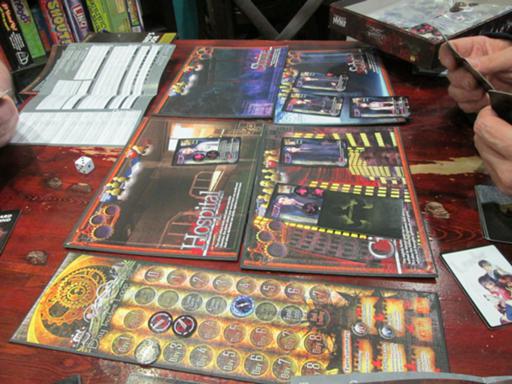
Next were a couple of games of
Timeline: Inventions,
one of the more interesting entries in the huge Timeline series. As
with all of them, one has to work out how the date associated with
one's card (in this case things like "invention of the phonograph")
fits into the collection of cards on the table. Get it right, and the
card goes into the timeline; get it wrong, and it's discarded and you
draw another. First to get rid of all their cards wins. I was quite
surprised at how well I did (and at the things I missed). This is a
very short game, good filler while waiting for people to turn up.
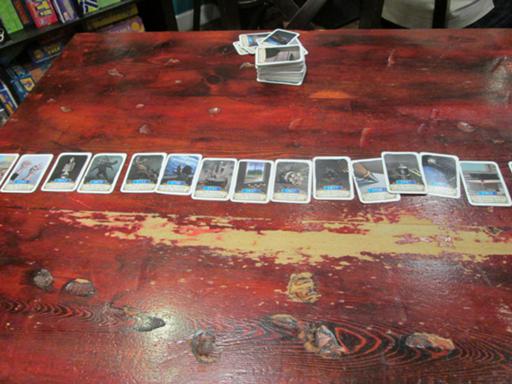
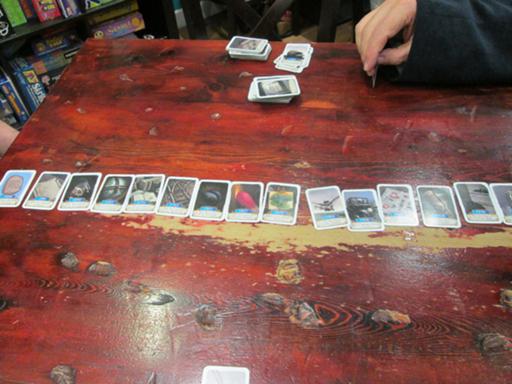
We hadn't played
Splendor for a
bit, so gave that a spin. (I really should try getting the bits of my
set into a smaller box.) I thought I was doing reasonably well, but
was still a turn or two off winning when the game ended. I'm
definitely not at the second level of play yet (where you're working
out what your opponent wants and taking it first).
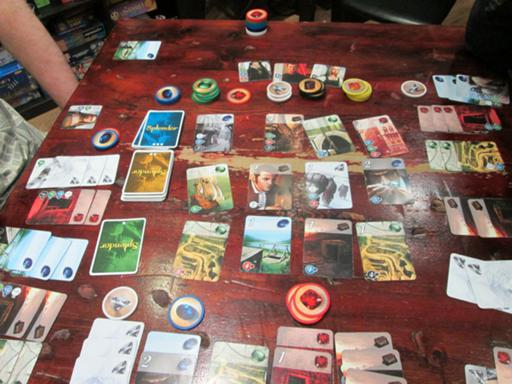
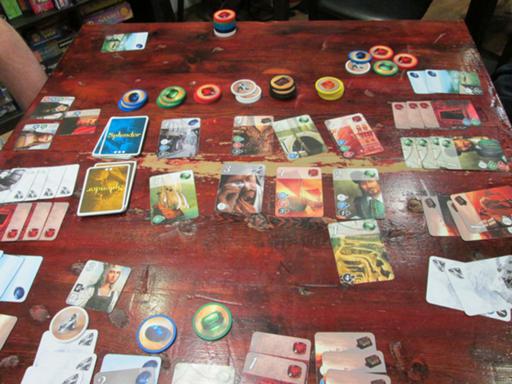
Last game of the evening was
Welcome to the Dungeon,
which is a push-your-luck variant: players take turns to draw
monsters, then either put them into the dungeon or discard them to get
rid of one of the hero's items of equipment (each of which is good at
killing particular sorts of monster, or just makes him tougher). The
last player not to pass then has to take the hero through the dungeon,
fighting the monsters (in a basic deterministic way) and hoping to
have enough hit points to survive.
It's all pretty simple, and there's a fair bit of luck involved, but
it's enjoyable nonetheless. My feeling was that it was best to pass
early if one was going to pass at all; that decision's the core of the
game, along with deciding whether a card goes into the dungeon or
removes a bit of equipment. I might buy this at some point. One of my
fellow players did, on the spot.
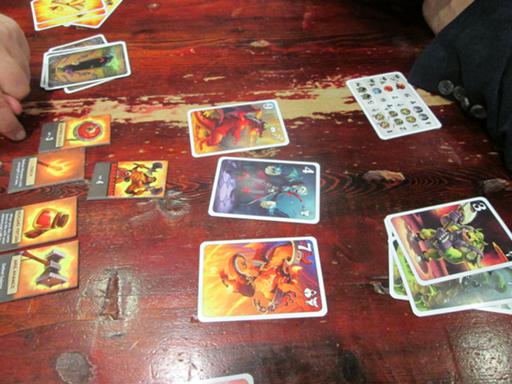
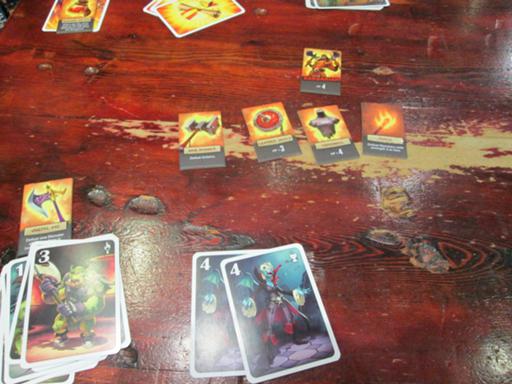
On Monday week (27 April) there's a Revolution tournament. Come along!
Comments on this post are now closed. If you have particular grounds for adding a late comment, comment on a more recent post quoting the URL of this one.